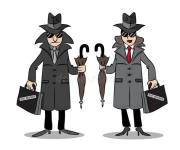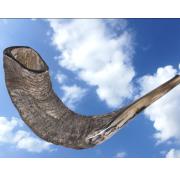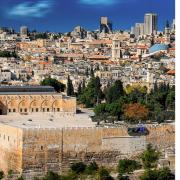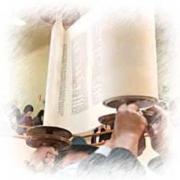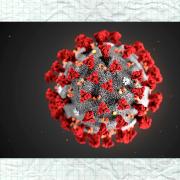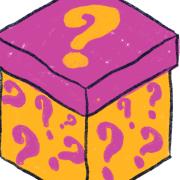And Hashem Remembered Rachel
Ever wonder why Yaakov Avinu has elevated Menashe and Efraim to the level of shevatim / tribes? Don't forget these kids have lived outside of Eretz Yisrael and grown without Yaakov Avinu's influence. Why did Yaakov Avinu elevate them to such great heights?
In Parashat Vayechi 48:5 when Yaakov Avinu was about to bless Menashe and Efraim, he says the following: "וְעַתָּ֡ה שְׁנֵֽי־בָנֶ֩יךָ֩ הַנּוֹלָדִ֨ים לְךָ֜ בְּאֶ֣רֶץ מִצְרַ֗יִם עַד־בֹּאִ֥י אֵלֶ֛יךָ מִצְרַ֖יְמָה לִי־הֵ֑ם אֶפְרַ֙יִם֙ וּמְנַשֶּׁ֔ה כִּרְאוּבֵ֥ן וְשִׁמְע֖וֹן יִֽהְיוּ־לִֽי׃ - Now, your two sons, who were born to you in the land of Egypt before I came to you in Egypt, shall be mine; Efraim and Menashe shall be mine no less than Reuven and Shimon." Why would Yaakov Avinu make such a request, he already has 12 sons, why does he need additional 2 sons?
On this pasuk, Ari HaKadosh says that Yaakov Avinu should have had fourteen sons, but Reuven confused the beds by taking them out of Bilhah's tent and placing them in Leah's tent (Parashat Vayishlach 35:22); he caused these two additional souls not to descend. These souls came down only when Yosef married Osnath. Therefore, says Yaakov, I say that Menashe and Efraim shall be like Reuven and Shimon to me since they were originally destined to be fathered by me.
In the same parsha in pasuk 30:14 says: "וַיֵּ֨לֶךְ רְאוּבֵ֜ן בִּימֵ֣י קְצִיר־חִטִּ֗ים וַיִּמְצָ֤א דֽוּדָאִים֙ בַּשָּׂדֶ֔ה וַיָּבֵ֣א אֹתָ֔ם אֶל־לֵאָ֖ה אִמּ֑וֹ וַתֹּ֤אמֶר רָחֵל֙ אֶל־לֵאָ֔ה תְּנִי־נָ֣א לִ֔י מִדּוּדָאֵ֖י בְּנֵֽךְ׃ - Once, at the time of the wheat harvest, Reuven came upon flowers in the field and brought them to his mother Leah. Rachel said to Leah - Please give me some of your son's flowers." The Sages say these flowers are jasmine or mandrakes which promote fertility.
וַתֹּ֣אמֶר לָ֗הּ הַמְעַט֙ קַחְתֵּ֣ךְ אֶת־אִישִׁ֔י וְלָקַ֕חַת גַּ֥ם אֶת־דּוּדָאֵ֖י בְּנִ֑י וַתֹּ֣אמֶר רָחֵ֗ל לָכֵן֙ יִשְׁכַּ֤ב עִמָּךְ֙ הַלַּ֔יְלָה תַּ֖חַת דּוּדָאֵ֥י בְנֵֽךְ׃ - But she said to her, "Was it not enough for you to take away my husband, that you would also take my son's flowers?" Rachel replied, "I promise, he shall lie with you tonight, in return for your son's flowers."
It seems to me that there's something about these flowers or the Dudaim that Reuven has found in the field. Rachel is asking for them to have more chances to conceive, but I believe it is more than that.
I believe this is what Rachel thought at that moment. The maids, Bilhah and Zilpah, already had two sons each, while Rachel had none. So, Rachel thought, "I am the wife of Yaakov Avinu, and I still have no children. The maids have two children each, and even if I have two, am I on the same level as the maids?"
So, she asked Leah for the dudayim in the plural form, the flowers—Rachel was asking for two more boys or tribes to be added to her, making her greater than the maids.
Leah agreed with Rachel. Rachel also said, "Yaakov shall lie with you tonight." He did. Until today, Leah rests with Yaakov Avinu in the Maarat Hamachpela or The Cave of the Patriarchs, and Rachel alone rests on the road to Ephrath, near Bethlehem.
Since this agreement was made between matriarchs—the Mothers of Our Nation—Hashem has remembered Rachel, and carried it out exactly as they have agreed on. Today, Rachel Imenu is the mother of four tribes: Yosef, Benyamin, Menashe, and Efrayim.
Just as Hashem has carried out their agreement in the past, He promised to do more for Rachel Imenu in the future.
A cry is heard, and that person has never been comforted. It is Mama Rachel's bitter cry.
Says Prophet Yirmiyahu, 31:15-17:
כֹּ֣ה ׀ אָמַ֣ר ה׳ ק֣וֹל בְּרָמָ֤ה נִשְׁמָע֙ נְהִי֙ בְּכִ֣י תַמְרוּרִ֔ים רָחֵ֖ל מְבַכָּ֣ה עַל־בָּנֶ֑יהָ מֵאֲנָ֛ה לְהִנָּחֵ֥ם עַל־בָּנֶ֖יהָ כִּ֥י אֵינֶֽנּוּ׃
Thus said G-d:
A cry is heard in Ramah—
Wailing, bitter weeping—
Rachel weeping for her children.
She refuses to be comforted
For her children, who are gone.
כֹּ֣ה ׀ אָמַ֣ר ה׳ מִנְעִ֤י קוֹלֵךְ֙ מִבֶּ֔כִי וְעֵינַ֖יִךְ מִדִּמְעָ֑ה כִּי֩ יֵ֨שׁ שָׂכָ֤ר לִפְעֻלָּתֵךְ֙ נְאֻם־ה׳ וְשָׁ֖בוּ מֵאֶ֥רֶץ אוֹיֵֽב׃
Thus said G-d:
Restrain your voice from weeping,
Your eyes from shedding tears;
For there is a reward for your labor
—declares G-d: They shall return from the enemy’s land.
וְיֵשׁ־תִּקְוָ֥ה לְאַחֲרִיתֵ֖ךְ נְאֻם־ה׳ וְשָׁ֥בוּ בָנִ֖ים לִגְבוּלָֽם׃
And there is hope for your future
—declares G-d:
Your children shall return to their borders.
May this come speedily in our days, amen!!
Shmuel Katanov





